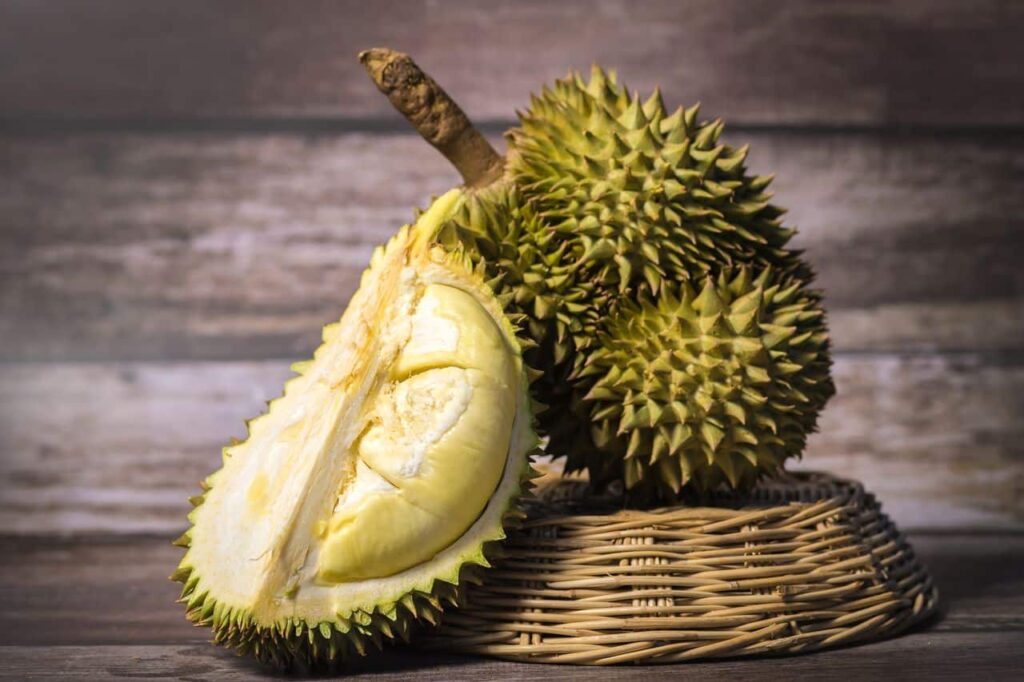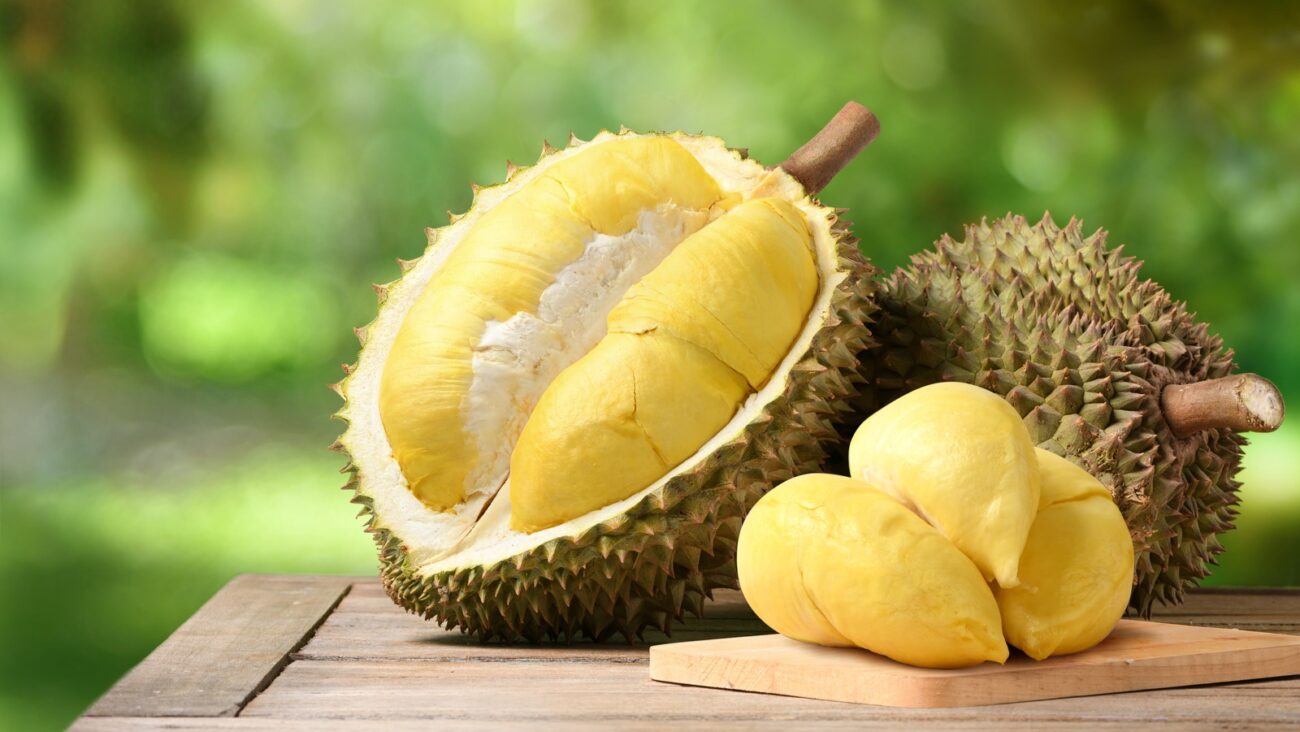Durian, often referred to as the “King of Fruits,” is a tropical fruit known for its distinctive smell, spiky exterior, and creamy, custard-like flesh. Loved by many and avoided by some due to its pungent aroma, durian is a nutritional powerhouse with a unique flavor profile.
In this blog post, we’ll explore the benefits of durian, how to enjoy it, and important contraindications to keep in mind.
What is Durian?
Durian (Durio zibethinus) is a tropical fruit native to Southeast Asia, particularly Malaysia, Indonesia, and Thailand. It’s famous for its strong odor, which has been described as a mix of rotten onions, turpentine, and sweet custard. Despite its divisive smell, durian is prized for its rich, creamy texture and complex flavor, which combines sweet, savory, and slightly bitter notes.
Nutritional Properties of Durian
Durian is not only delicious but also packed with nutrients. Here’s a breakdown of its key nutritional components:
- Rich in Vitamins: Durian is an excellent source of vitamin C, vitamin B6, and folate.
- High in Minerals: It contains potassium, magnesium, copper, and manganese.
- Healthy Fats: Durian provides monounsaturated fats, which are beneficial for heart health.
- Dietary Fiber: Supports digestion and gut health.
- Antioxidants: Contains compounds like anthocyanins and carotenoids, which fight oxidative stress.
- Natural Sugars: Provides quick energy but should be consumed in moderation.
Health Benefits of Durian
- Boosts Immune System
Durian is rich in vitamin C, which strengthens the immune system and helps the body fight off infections. - Supports Heart Health
The potassium in durian helps regulate blood pressure, while its healthy fats and fiber contribute to lower cholesterol levels. - Improves Digestion
The high fiber content in durian promotes healthy digestion and prevents constipation. - Enhances Energy Levels
Durian is calorie-dense and contains natural sugars, making it a great energy booster for active individuals. - Rich in Antioxidants
The antioxidants in durian help combat free radicals, reducing inflammation and lowering the risk of chronic diseases. - Supports Bone Health
Durian contains calcium, potassium, and magnesium, all of which are essential for maintaining strong bones. - Promotes Healthy Skin
The vitamin C and antioxidants in durian help promote collagen production and protect the skin from damage.
How to Enjoy Durian
Durian can be enjoyed in a variety of ways, depending on your preferences:
- Fresh: Eat the creamy flesh directly from the fruit.
- Desserts: Use durian in ice cream, cakes, or puddings for a unique flavor.
- Smoothies: Blend durian with other fruits and milk for a creamy, nutrient-packed drink.
- Cooked Dishes: In some cultures, durian is used in savory dishes or fried as a snack.
- Dried or Candied: For a less intense flavor, try dried or candied durian.
When selecting durian, look for fruits with a firm stem and a strong aroma. The flesh should be creamy and slightly soft when ripe.
Contraindications and Precautions
While durian offers many health benefits, there are some important precautions to consider:
- High in Calories and Sugar
Durian is calorie-dense and high in natural sugars, so it should be consumed in moderation, especially by individuals managing diabetes or weight. - Alcohol Interaction
Durian contains compounds that can inhibit the enzyme responsible for breaking down alcohol, leading to potential discomfort or adverse effects. Avoid consuming durian with alcohol. - Allergic Reactions
Some individuals may be allergic to durian, experiencing symptoms like itching, swelling, or difficulty breathing. If you suspect an allergy, avoid the fruit and consult a healthcare professional. - High Potassium Content
While potassium is beneficial for most people, those with kidney problems or on potassium-restricted diets should consume durian cautiously. - Strong Odor
The smell of durian can be overwhelming for some people. Be mindful of where you consume it, as it’s often banned in public spaces like hotels and public transportation in some countries. - Pregnancy and Breastfeeding
While durian is generally safe during pregnancy and breastfeeding, its high sugar and calorie content means it should be eaten in moderation. Consult a healthcare provider for personalized advice.

Durian is a unique and nutrient-rich fruit that offers a wide range of health benefits, from boosting immunity to supporting heart health. Its creamy texture and complex flavor make it a beloved treat for many, though its strong odor can be polarizing.
If you’re new to durian, start with small portions to see if you enjoy its taste and texture. And remember, moderation is key—especially if you’re watching your sugar or calorie intake.
Whether you’re savoring it fresh, blending it into a smoothie, or using it in a dessert, durian is a fruit that’s worth trying at least once. Just be sure to keep its contraindications in mind to enjoy it safely and responsibly.
Disclaimer: This blog post is for informational purposes only and is not a substitute for professional medical advice. Always consult a healthcare provider before making significant changes to your diet or health routine.

